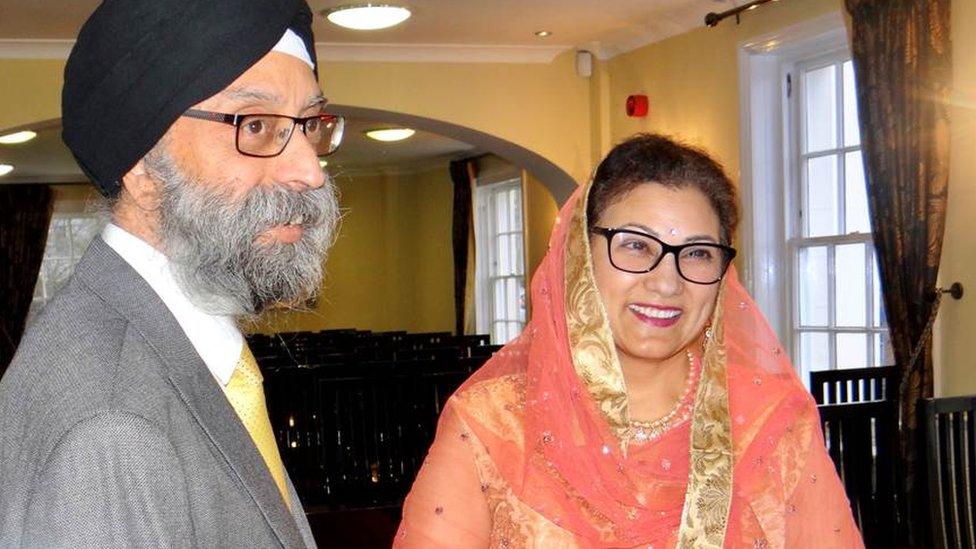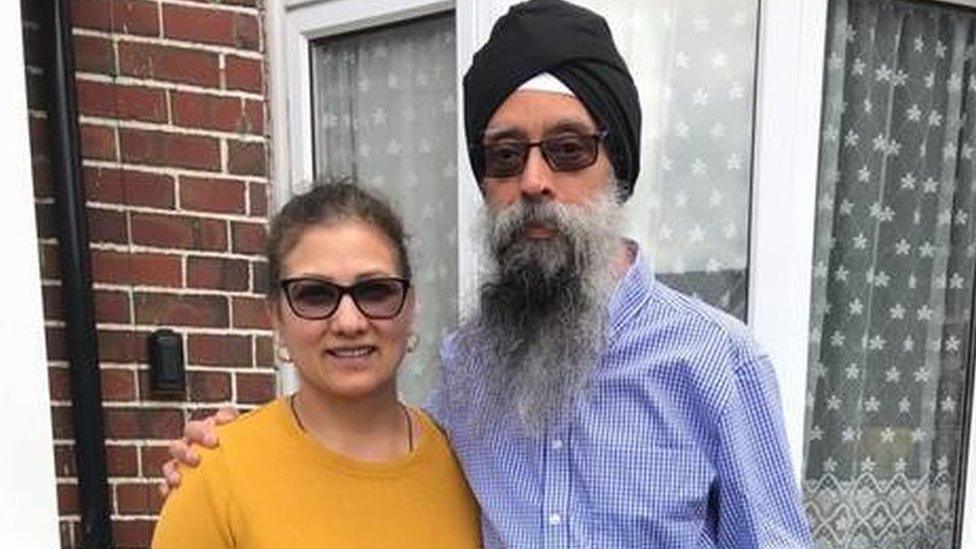Concerns over Oldbury mum and stepdad killer 'unaddressed'
- Published

Anmol Chana was jailed for life with a minimum term of 36 years
Concerns about a man's health before he murdered his mother and stepfather went unaddressed, says a report on professionals' handling of the case.
Anmol Chana was 25 when he stabbed Jasbir Kaur, 52, and husband Rupinder Bassan, 51, in Oldbury, West Midlands, in 2020.
An investigation has since said more could have been done by agencies about his violence and mental health.
It found family felt he showed elements of psychosis before the attacks.
Chana is serve a minimum of 36 years in prison.
The Safer Sandwell Partnership Local Police and Crime Board published its Independent Domestic Homicide Review on Thursday, and said understanding child-to-parent abuse "was not widespread, even across agencies that would be expected to deal" with its effects.
Among the highlighted issues were instances of victim-blaming by agencies and Chana's lack of formal assessment by mental health professionals despite troubling behaviour.
After Chana killed Mrs Kaur and Mr Bassan at their home, he stole from them, went to the pub and planned to flee the country.

Rupinder Bassan and Jasbir Kaur were killed at home in 2020
The review covered healthcare professionals' involvement with the family from 2002, when they moved to Sandwell, until the couple's death in February 2020.
It raised "significant victim-blaming by professionals in their response" to child-to-parent abuse and said that "clear, explicit threats of violence" made by Chana to his mother "never assumed the prominence that, with hindsight, they should have".

Jasbir Kaur and Rupinder Bassan were stabbed "ferociously", the criminal proceedings heard
The report said Chana "was never formally assessed by mental health professionals in adulthood and was not referred to mental health services by his GP or [emergency] staff, because he was unwilling to engage", which meant "the family's concerns went unaddressed".
"They felt in the months before the homicide that he was exhibiting elements of psychosis and was a danger to them and others," the report stated.
Partnership chair Ch Supt Maria Fox said it was clear that "over many years of agencies' involvement with the perpetrator", more could have been done to address his violent behaviour and "poor mental health".
She added the document explained how "a number of services' interactions would be different today" through "updated safeguarding policies and a greater awareness among professionals of the impact of adverse childhood experiences and child-to-parent abuse".
Ch Supt Fox said there were a number of recommendations arising from the review and partner organisations had made changes.

Follow BBC West Midlands on Facebook, external, Twitter, external and Instagram, external. Send your story ideas to: newsonline.westmidlands@bbc.co.uk, external
- Published21 August 2020
